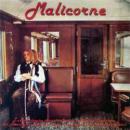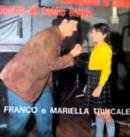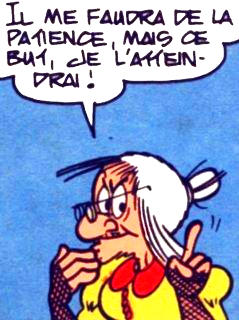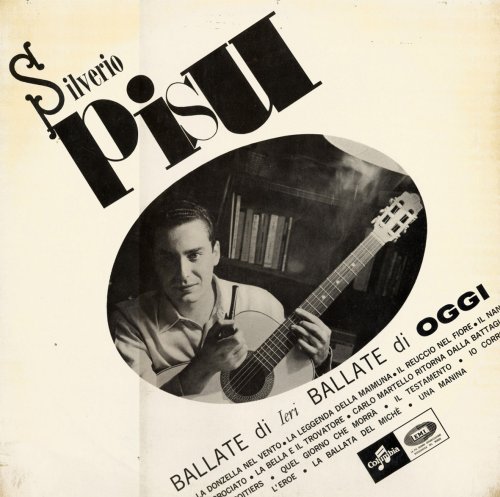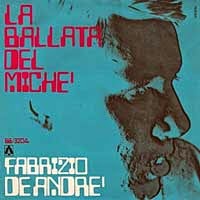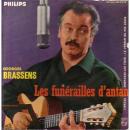Sogno numero due
La versione inglese di Dennis Criteser [2014]
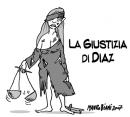
Dal blog Fabrizio de André in English
The worker continues to dream, but now in court presumably after having been arrested for throwing the bomb. But the judge informs him that the bourgeois powers are in the know of his acts, and accusations of murder are transformed into thanks for having eliminated old remnants that were bothering power itself, which now has found another way of governing. The worker correctly used the instruments of law, and his gesture was nothing other than a search for personal power. He is welcomed, and his own liberty is placed at his disposal. - Dennis Criteser
DREAM #2
(Continues)
(Continues)
Contributed by Riccardo Venturi 2016/2/16 - 08:38
Al ballo mascherato
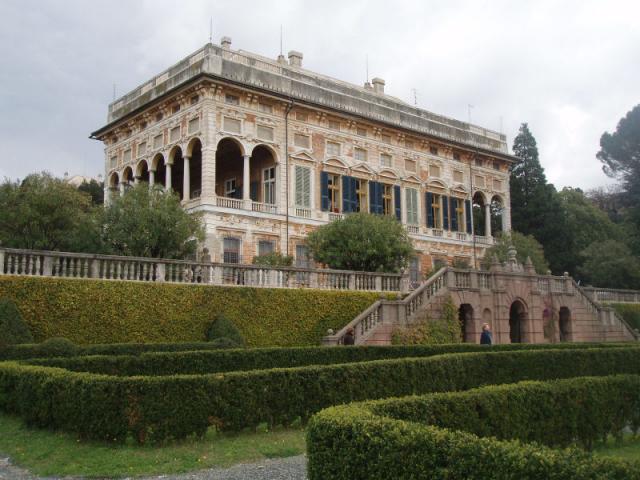
Dal blog Fabrizio de André in English
This song is the first of the worker's dreams, where he blows up symbols of power right and left, political, cultural, ideological and religious, with the intent to tear the masks off the hypocrites and deligitimize the powers that be. - Dennis Criteser
AT THE MASKED BALL
(Continues)
(Continues)
Contributed by Gaspard De La Nuit 2016/2/16 - 04:21
Hemmige
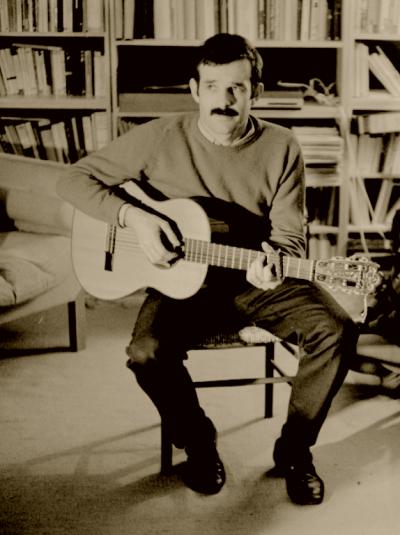
d’après la version italienne de Rob le Svizzero – Rob le Suisse d’une
Chanson en Bärndüdsch (alémanique bernois) – Hemmige – Mani Matter – 1970
Une chanson tellement fameuse qu’elle a été reprise par la plupart des principaux chanteurs suisses. On notera particulièrement l’interprétation de Stephan Eicher
Quand Eicher la chante en Suisse romande de langue française, le public est désormais capable de la chanter dans l’impossible allemand bernois.
Décidément, R.V. a raison quand il affirme que le Schwyzertüütsch, et a fortiori, le Bärndüdsch, version bernoise du précédent, est une langue impossible ou presque qui n’est pas né dedans.
On connaît ça ailleurs, dit Lucien l’âne en souriant des yeux. Ce n’est pas spécifique aux langues suisses alémaniques. En fait, c’est même assez général. Que sait-on, toi et moi de la quasi-totalité des 142 langues utilisées jusqu’à présent dans les Chansons... (Continues)
Chanson en Bärndüdsch (alémanique bernois) – Hemmige – Mani Matter – 1970
Une chanson tellement fameuse qu’elle a été reprise par la plupart des principaux chanteurs suisses. On notera particulièrement l’interprétation de Stephan Eicher
Quand Eicher la chante en Suisse romande de langue française, le public est désormais capable de la chanter dans l’impossible allemand bernois.
Décidément, R.V. a raison quand il affirme que le Schwyzertüütsch, et a fortiori, le Bärndüdsch, version bernoise du précédent, est une langue impossible ou presque qui n’est pas né dedans.
On connaît ça ailleurs, dit Lucien l’âne en souriant des yeux. Ce n’est pas spécifique aux langues suisses alémaniques. En fait, c’est même assez général. Que sait-on, toi et moi de la quasi-totalité des 142 langues utilisées jusqu’à présent dans les Chansons... (Continues)
APPRÉHENSIONS
(Continues)
(Continues)
Contributed by Marco Valdo M.I. 2016/2/15 - 22:59
Non più andrai farfallone amoroso

Scusate, vorrei soltanto sapere se le mie intuizioni incirca il significato che sia iscritto nel nome del principale e eponimo protagonista dell'opera sono giustificate. I dizionari dicono barbiere... cosa rasava allora???
Se ho ragione, quel francese era un genio, allora : D
Saludski
https://www.youtube.com/watch?v=TLb6L2KrQYQ
Se ho ragione, quel francese era un genio, allora : D
Saludski
https://www.youtube.com/watch?v=TLb6L2KrQYQ
krzyś 2016/2/15 - 21:26
The Pogues & Kirsty MacColl: Fairytale of New York
Traduzione di Angelo Branduardi da "Così è se mi pare" (2010)

Voce femminile: Fawzia Selama
FAVOLA DI NATALE A NEW YORK
(Continues)
(Continues)
Contributed by dq82 2016/2/15 - 14:01
Bella Ciao
Anonymous

A Bologna , nella biblioteca comunale delle Lame , in via Marco Polo , fuori Porta Lame , dopo l'anno 2000 e' stato fondato l' imponente archivio storico-musicale del "Canzoniere delle Lame". E' visitabile solo su appuntamento. Contiene circa duemila libri , dischi , cassette , documenti , ecc. sul tema "musica politica di tutto il mondo". Contiene anche varie versioni di "Bella Ciao", raccolte ai festival mondiali della canzone politica che si tengono ogni anno alla fine di febbraio a Berlino Est , con gruppi di tutto il mondo. Questo festival esiste tuttora. Info presso la biblioteca comunale delle Lame di Bologna.
ginestri gianfranco del canzoniere delle lame di bologna 2016/2/14 - 22:08
El forastero

Sul nuovo sito della Fundación Atahualpa Yupanqui il testo de "El Forastero" compare nella raccolta di poesie "Payador Perseguido" del 1965 con il titolo "Hermanito del mundo".
In ogni caso, la canzone andrebbe datata almeno al 1965, non certo al 1992...
In ogni caso, la canzone andrebbe datata almeno al 1965, non certo al 1992...
Bernart Bartleby 2016/2/14 - 21:37
Dulce Et Decorum Est

DULCE ET DECORUM EST
(Continues)
(Continues)
Contributed by Bartleby + CCG Staff 2016/2/14 - 16:39
I'm Your Captain (Closer to Home)

Una delle più famose (e belle) canzoni dei Grand Funk Railroad, racconta del capitano di una nave che, nel corso di un viaggio, è caduto ammalato e, forse nel delirio della febbre, teme di perdere il comando, che la sua sua nave gli sia sottratta, o che addirittura la sua ciurma si stia per ammutinare, o che l’imbarcazione sia attaccata da nemici, da pirati... Teme, in definitiva, di essere alla fine del suo viaggio terreno e di non poter riportare la pelle in salvo a casa...
Una canzone onirica o, meglio, lisergica, come era quasi d’obbligo in quegli anni...
E infatti molti ne hanno interpretato il significato come un “viaggio allucinante”, moderna Odissea omerica scaturita dall’LSD... Altri invece hanno ritenuto che “I'm Your Captain” abbia a che fare con la guerra in Vietnam... Senza voler abbracciare l’interpretazione, a mio avviso molto forzata, che il capitano sia Nixon che stava... (Continues)
Una canzone onirica o, meglio, lisergica, come era quasi d’obbligo in quegli anni...
E infatti molti ne hanno interpretato il significato come un “viaggio allucinante”, moderna Odissea omerica scaturita dall’LSD... Altri invece hanno ritenuto che “I'm Your Captain” abbia a che fare con la guerra in Vietnam... Senza voler abbracciare l’interpretazione, a mio avviso molto forzata, che il capitano sia Nixon che stava... (Continues)
Bernart Bartleby 2016/2/13 - 23:42
Er soudarded zo gùisket é ru [Ar soudarded zo gwisket e ruz]
Max Ar Fur
![Er soudarded zo gùisket é ru [Ar soudarded zo gwisket e ruz]](img/upl/kazhdu.gif)
English translation by Richard Gwenndour
Piacenza (Plesañs), 13.2.2016
Piacenza (Plesañs), 13.2.2016
THE SOLDIERS ARE DRESSED IN RED
(Continues)
(Continues)
Contributed by Richar Gwenndour 2016/2/13 - 09:56
Fila la lana
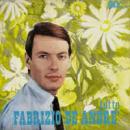
Dal blog Fabrizio de André in English
"Fila la lana" was presented as a translation of a popular medieval French song from the 15th century. In fact the French source song was "File la laine" composed by Robert Marcy in 1948, popularized by Jacque Douai in 1955. The War of Valois in De André's version is better known as the War of the Breton Succession (1341-1364). The original French version speaks of the "Monsieur of Malbrough" which refers to a 1709 battle in the War of the Spanish Succession depicted in one of the most famous of French folk songs, "Marlbrough s'en va-t-en guerre." - Dennis Criteser
SPIN THE WOOL
(Continues)
(Continues)
Contributed by Riccardo Venturi 2016/2/13 - 08:48
Girotondo

Dal blog Fabrizio de André in English
In "Girotondo," De Andrè marries the joyous melody of a popular song "Marcondiro'ndera" with the deadly serious theme of the possible annihilation of humankind through the use of nuclear weapons in war, intensified with the use of a chldren's chorus. After the success of "La canzone di Marinella," Italy's state television station Rai invited De Andrè often to sing his big hit. But De Andrè refused until he could choose what material to present. Among other songs, he chose "La guerra di Piero" and "Girotondo," anti-war anthems that reflected De Andrè's deeply held pacifism. - Dennis Criteser
RING-AROUND-THE-ROSIE
(Continues)
(Continues)
Contributed by Riccardo Venturi 2016/2/13 - 08:41
Coda di Lupo

Dal blog Fabrizio de André in English
Coda di lupo" must be understood in the context of the failure and dissolution of various protest movements in 1976 and 1977, including the Metropolitan Indians, anarchists who wore face paint, dressed like hippies, listened to rock music and enjoyed acid and weed, and who protested bourgeois values through urban guerilla activism, occupying universities, factories, etc.
Rimini grew out of De André's disappointments with the political events of the previous couple of years. In close collaboration with Massimo Bubola, a young 24-year-old who had just released his first album, De André explored several social and political themes, including abortion, homosexuality, and how the petty bourgeois attempted to move into the ranks of the powerful and rise above the political and social turmoil of the times. The music has more influence from American rock and... (Continues)
Coda di lupo" must be understood in the context of the failure and dissolution of various protest movements in 1976 and 1977, including the Metropolitan Indians, anarchists who wore face paint, dressed like hippies, listened to rock music and enjoyed acid and weed, and who protested bourgeois values through urban guerilla activism, occupying universities, factories, etc.
Rimini grew out of De André's disappointments with the political events of the previous couple of years. In close collaboration with Massimo Bubola, a young 24-year-old who had just released his first album, De André explored several social and political themes, including abortion, homosexuality, and how the petty bourgeois attempted to move into the ranks of the powerful and rise above the political and social turmoil of the times. The music has more influence from American rock and... (Continues)
TAIL OF THE WOLF
(Continues)
(Continues)
Contributed by Riccardo Venturi 2016/2/13 - 08:10
The Girl I Left Behind Me
Anonymous
L’introduzione inglese al brano è ripresa da Contemplator, o da uno dei tanti siti che lo citano.
Invito a leggere anche l’articolata introduzione di Cattia Salto sul suo sito Terre Celtiche, dove c’è anche la sua traduzione italiana del brano, che riporto:
Invito a leggere anche l’articolata introduzione di Cattia Salto sul suo sito Terre Celtiche, dove c’è anche la sua traduzione italiana del brano, che riporto:
LA RAGAZZA CHE HO LASCIATO DIETRO DI ME
(Continues)
(Continues)
Contributed by Bernart Bartleby 2016/2/12 - 15:12
Stornelli d’esilio
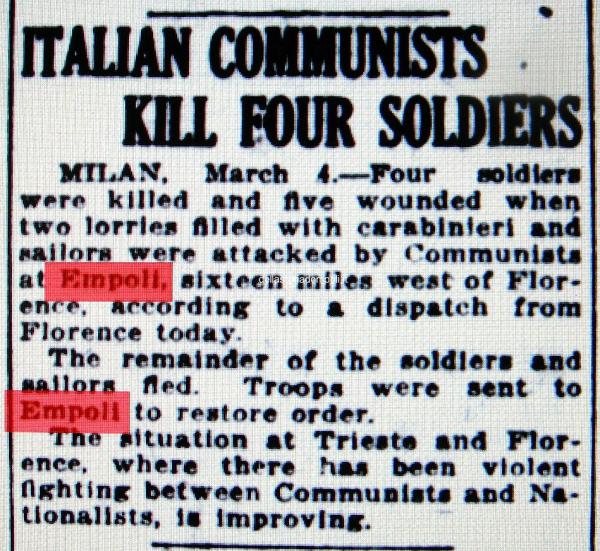
Strofe di anonimi autori antifascisti cantate sulla stessa aria degli “Stornelli d’esilio” di Pietro Gori, di cui è citato il ritornello:
Hanno ammazzato Giovanni Berta
dei fasci fiorentini [o capo degli assassini]
è stato vendicato
Spartaco Lavagnini.
La nostra patria è il mondo intero
la nostra legge è la libertà
e noi viviamo d'un sol pensiero
liberarla l'umanità.
Hanno ammazzato Giovanni Berta
figlio di pescecani
viva quel comunista
che gli pestò le mani!
La nostra patria è il mondo intero
la nostra legge è la libertà
e noi viviamo d'un sol pensiero
liberarla l'umanità.
1921, Annus Horribilis: a Livorno i socialisti si spaccavano e nasceva il Partito Comunista d’Italia; in Germania Adolf Hitler diventava presidente del NSDAP, il Partito Naz(ional-social)ista (dei Lavoratori Tedeschi); a Roma Mussolini fondava il Partito Nazionale Fascista, evoluzione dei Fasci di Combattimento... (Continues)
Hanno ammazzato Giovanni Berta
dei fasci fiorentini [o capo degli assassini]
è stato vendicato
Spartaco Lavagnini.
La nostra patria è il mondo intero
la nostra legge è la libertà
e noi viviamo d'un sol pensiero
liberarla l'umanità.
Hanno ammazzato Giovanni Berta
figlio di pescecani
viva quel comunista
che gli pestò le mani!
La nostra patria è il mondo intero
la nostra legge è la libertà
e noi viviamo d'un sol pensiero
liberarla l'umanità.
1921, Annus Horribilis: a Livorno i socialisti si spaccavano e nasceva il Partito Comunista d’Italia; in Germania Adolf Hitler diventava presidente del NSDAP, il Partito Naz(ional-social)ista (dei Lavoratori Tedeschi); a Roma Mussolini fondava il Partito Nazionale Fascista, evoluzione dei Fasci di Combattimento... (Continues)
Bernart Bartleby 2016/2/12 - 14:24
Quando Bandiera Rossa si cantava
Anonymous

Invito a leggere “Quando bandiera rossa si cantava... Ragazzi di Villa Argine condannati per offese al Duce”, di Franco Piccinini, articolo pubblicato su sulla rivista La Piva dal Carner, ottobre 2015, negli atti di un seminario musicale tenutosi ad Orta San Giulio nel 2015.
Racconta di quando una sera del 1936 un gruppo di ragazze e ragazzi di Cadelbosco, località La Rocca, Reggio Emilia, furono sorpresi a cantare “Quando Bandiera Rossa si cantava” da un fascistello locale e da questi denunciati in blocco. Furono tutti condannati “per offese a S.E. il Capo del Governo e grida sediziose” e condannati chi a sei, chi a tre mesi con la condizionale e a svariate centinaia di Lire di multa e ammenda…
Racconta di quando una sera del 1936 un gruppo di ragazze e ragazzi di Cadelbosco, località La Rocca, Reggio Emilia, furono sorpresi a cantare “Quando Bandiera Rossa si cantava” da un fascistello locale e da questi denunciati in blocco. Furono tutti condannati “per offese a S.E. il Capo del Governo e grida sediziose” e condannati chi a sei, chi a tre mesi con la condizionale e a svariate centinaia di Lire di multa e ammenda…
Bernart Bartleby 2016/2/11 - 15:41
Fabrizio De André: Jamin-a

Dal blog Fabrizio De André in English
In De Andrè's words, "Jamína is not a dream, but rather the hope for respite. A respite in the face of possible gale force conditions at sea, or even a shipwreck. I mean that Jamina is the hypothesis of a positive adventure that, in a corner of the fantasy of a sailor, always finds space and respite. Jamina is the companion in an erotic voyage that every sailor hopes for, or better, expects to encounter in every place, after the dangerous broadsides subjected to by an enemy sea or an imprudent commander." - Dennis Criteser
JAMIN-A
(Continues)
(Continues)
Contributed by Riccardo Venturi 2016/2/11 - 07:57
Canzone del padre

Dal blog Fabrizio De André in English
"Per the album notes, the worker "has understood that he is a finished man with no possibility of recovery, that his acts will always be individualistic, striving for his own personal needs, and that by attaining more power one doesn't escape one's condition of isolation and anxiety. The bomb that was tossed with force, with anger and with a sense of vendetta in the dream, now in reality becomes a moment of exhilaration and, obviously of lucidity." - Dennis Criteser
FATHER'S SONG
(Continues)
(Continues)
Contributed by Riccardo Venturi 2016/2/11 - 06:58
Mourir pour des idées

Dal blog Fabrizio De André in English
"Morire per delle idee" is a translation/adaptation of Georges Brassens's "Mourir pour des idées" which was written in response to strong criticism for another of his songs "Les deux oncles," an anti-war song that was controversial because it treated two French brothers equally - one a British sympathizer and the other a collaborationist.
Canzoni, released in 1974, was a "filler" album, like Volume III, desired by De André's label. The only three previously unreleased songs here are covers of Dylan's "Desolation Row" and of two songs by Georges Brassens. Also included are two covers of Leonard Cohen songs.
Canzoni, released in 1974, was a "filler" album, like Volume III, desired by De André's label. The only three previously unreleased songs here are covers of Dylan's "Desolation Row" and of two songs by Georges Brassens. Also included are two covers of Leonard Cohen songs.
DYING FOR SOME IDEAS
(Continues)
(Continues)
Contributed by Riccardo Venturi 2016/2/11 - 05:52
Mourir pour des idées
Attribuita a NTBAHA [sic] e datata 2/11/2014. Appare come una versione letterale dell'originale francese.
ان نموت من اجل افكار
(Continues)
(Continues)
Contributed by Riccardo Venturi 2016/2/11 - 05:45
Mourir pour des idées
Svensk version av Ola Henricsson och Örjan Hjorth.
Att dö för idéer è la versione in lingua svedese (il titolo è l'esatta resa in svedese di quello originale) interpretata da Ola Henricsson e Örjan Hjorth (ma la traduzione è del solo Ola Henricsson). Li vediamo qui interpretarla in uno spettacolo a bordo della nave S/S Marieholm, ormeggiata a Göteborg, il 6 marzo 2015. Il testo non è purtroppo reperibile in rete; ci occuperemo appena possibile di trascriverlo all'ascolto. [RV]
Att dö för idéer è la versione in lingua svedese (il titolo è l'esatta resa in svedese di quello originale) interpretata da Ola Henricsson e Örjan Hjorth (ma la traduzione è del solo Ola Henricsson). Li vediamo qui interpretarla in uno spettacolo a bordo della nave S/S Marieholm, ormeggiata a Göteborg, il 6 marzo 2015. Il testo non è purtroppo reperibile in rete; ci occuperemo appena possibile di trascriverlo all'ascolto. [RV]
Contributed by Riccardo Venturi 2016/2/11 - 04:50
Mourir pour des idées

Ripresa dai sottotitoli del video YouTube sopra proposto, con trascrizione diretta. La variante del portoghese utilizzato è chiaramente brasiliana.
MORRER POR IDEIAS
(Continues)
(Continues)
Contributed by Riccardo Venturi 2016/2/10 - 20:41
×
![]()






![Die Moorsoldaten [Börgermoorlied; Das Moorlied]](img/thumb/c971_130x140.jpeg?1328359947)
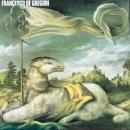
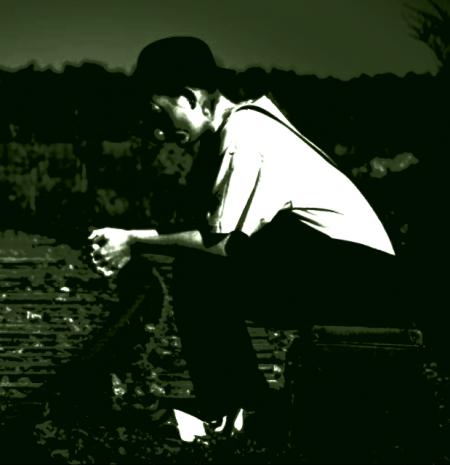
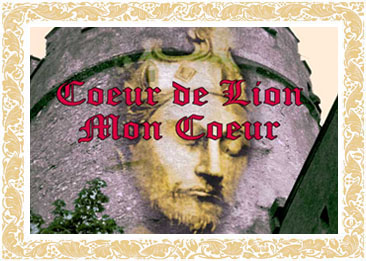
![Chacun de vous est concerné [incl. <em>Canzone del maggio</em> di Fabrizio De André]](img/thumb/c3706_130x140.jpeg?1328479274)
![Chacun de vous est concerné [incl. <em>Canzone del maggio</em> di Fabrizio De André]](img/upl/18025.jpg)



